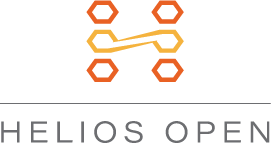Spotlight Series Recap: Data Stewardship and Data Sharing
On August 23rd, 2022, HELIOS Open convened higher education leaders to discuss their data stewardship policy efforts with members. Geeta Swamy, Vice Dean for Scientific Integrity at the Duke University School of Medicine, Associate Vice President for Research, and HELIOS Open Strategic Lead moderated the session.
Sarah Nusser, Professor Emerita of Statistics and former Vice President for Research at Iowa State University (ISU)
Nusser described her role in establishing Iowa State's Data Sharing Task Force and as a collaborator with the AAU-APLU Accelerating Public Access to Research Data (APARD) initiative. When reflecting on APARD, Nusser described the importance of the the Guide to Accelerate Public Access to Research Data in articulating a vision for implementing a data sharing policy and in providing recommended steps, processes, and case studies that help campuses understand different implementation options.
At ISU, Nusser knew she needed to engage her campus colleagues and offices that support research advancement, compliance, and data sharing services when beginning to develop their institutional data sharing policy. With ISU’s library dean and the chief information officer (CIO) on board, they established a task force to discover and represent not only the faculty researcher perspective, but also the various entities that are involved in data sharing efforts. The data sharing task force piloted initial components of the system, including a draft research data policy that was released as guidelines to researchers, a cross-office data submission process that connected compliance reviews with data sharing support for researchers, and a prototype data repository that enabled researchers to share their data after review (DataShare).
Nusser concluded by describing challenges the task force faced with establishing their system before the APARD Guide was published. While campus leaders were supportive of this effort, data transparency was not included as a priority on their campus messaging to faculty, as is now recommended by the Guide. The task force was also established without explicit resources, which meant that task force members could not devote the kind of time needed to move quickly. Nusser also noted that the task force did not do a formal inventory of campus resources and discovered potential partners in other campus units late in their process that might have been helpful to the project.
In her concluding remarks, she reflected, “You can make policies, you can set up infrastructure, you can implement trainings and workflows, but sometimes the biggest barrier is navigating campus culture.” As researchers are embracing open science practices, it's becoming clearer what kind of planning and tool sets are useful to assist this adoption. Nusser recommended ensuring support for data sharing is present at the front end of a research project. Nusser also advocated for rethinking our reward system to value research transparency, including sharing data, code, and methodology. The National Academies Roundtable on Aligning Incentives for Open Scholarship and HELIOS Open are big steps forward in this.
Nick Wigginton, Assistant Vice President for Research at University of Michigan
Just as the University of Michigan began assessing how to implement recommendations from a committee on public access to research data, three events slowed their work: 1) the COVID-19 pandemic began, shifting everyone’s attention to ensuring research continuity across the university, 2) the NIH announced they would soon be releasing a new data sharing policy, and 2) both the vice provost and provost, who initially charged the committee to work on a data sharing policy, transitioned from the institution, leaving the committee with little bandwidth to continue.
Wigginton indicated the APARD guidelines and the NIH requirements re-energized their policy work in 2021, and the committee began focusing on developing and implementing concrete steps to launch the U-M Research Data Stewardship Initiative. At the initiative's launch, they provided a website with guides, best practices, and frequently asked questions. While the NIH policy is a specific need to address in certain fields, they intentionally sought to be inclusive of all disciplines given broader expectations around data stewardship across other agencies.
The Research Data Stewardship Initiative, Wigginton described, established a multi-pronged approach to coalition building and education involving various campus units. Given the broad range of units that touch various elements of research data across a large research institution, the effort closely engages with the data service and research compliance communities, the CIO and General Counsel’s offices, the library, and schools and colleges. With this work, the committee encountered challenges inherent in coordinating across such a large institution: “There are probably hundreds of people across our institutions that think about data management every day; some work in service units to support faculty, some run disciplinary repositories, and some are faculty that are leading their disciplines and advising trainees.” Campus efforts like the Research Data Stewardship Initiative are focused on learning from one another and ensuring researchers are following the value and best practices around data that can improve the transparency, rigor, and impact of research.
In the future, the Initiative will host a series of webinars with leading edge researchers who have designed data or code sharing platforms or who study various aspects of data governance and sharing. This effort will support faculty-to-faculty learning about new and changing research practices, all with the goal of demonstrating the value of research data stewardship as the research landscape shifts.


